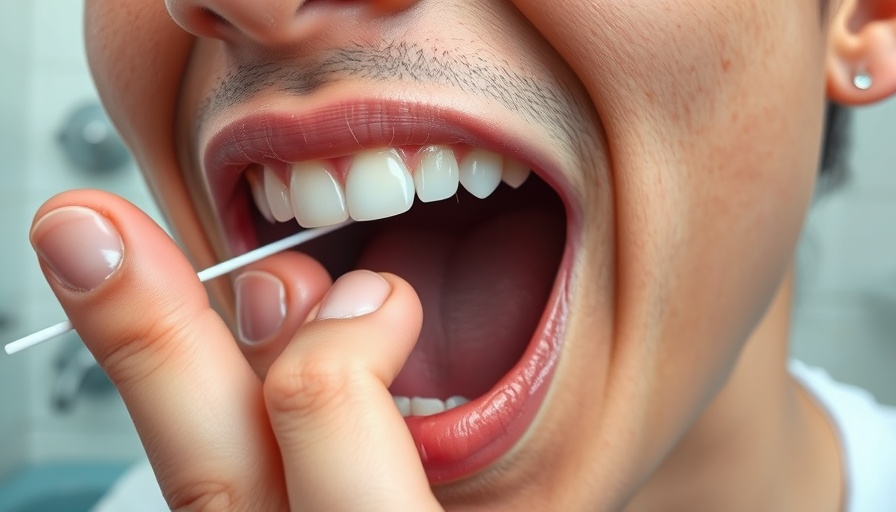
Understanding the Importance of Flossing
Flossing is an essential part of maintaining optimal dental health. Many of us brush diligently, yet a significant number overlook this crucial step, leading to common dental issues like gum disease and cavities. Studies show that flossing can effectively remove plaque and food debris located between the teeth—areas that toothbrushes often miss. Yet, despite its well-documented benefits, a large portion of the population remains either unaware of the proper flossing techniques or neglects to include flossing in their oral hygiene routine.
In 'you’re missing a spot flossing your teeth #shorts', the discussion dives into critical flossing techniques that sparked deeper analysis on our end.
Identifying Common Misconceptions
One prevalent myth is that flossing is unnecessary if your teeth are relatively straight. However, even with straight teeth, food particles can become trapped between them, leading to plaque build-up. Ignoring this can result in painful dental issues, such as needing a root canal or dental implants. Incorporating flossing into your daily routine can help mitigate these risks, promoting healthier gums and teeth.
Flossing Techniques That Work
Flossing isn't just about the action itself but how you do it. Here’s a simple guide to make the most of your flossing:
- Choose the Right Type: Different types of floss, from waxed to unwaxed and dental tape, can cater to different spaces between teeth. Picking the right one can enhance effectiveness.
- Gentle Technique: Wrap the floss around your finger, gently slide it between your teeth, and curve it around each tooth in a C shape. Avoid snapping the floss, which can harm gums.
- Consistency is Key: Aim to floss at least once a day, ideally before or after brushing, to remove hidden plaque and food particles systematically.
Potential Consequences of Neglecting Flossing
The consequences of skipping flossing extend beyond having bad breath or food stuck in between teeth. Long-term neglect can lead to gum disease, which has been linked to systemic health issues like heart disease and diabetes. Additionally, insufficient dental care can multiply the potential need for dental procedures such as tooth extractions or dental crowns. Educating yourself about the significance of flossing can help stave off these challenges and extend the longevity of your dental health.
Inspiring Change Through Education
Understanding the importance of flossing should be part of every family’s dental education. Parents can play a pivotal role by introducing their children to the habit early, teaching them how to floss correctly, and why it matters. This way, the next generation can maintain healthier smiles, and fewer will require pediatric dentistry or advanced interventions like braces or dental veneers.
Encouraging a Healthier Smile
If you’re looking to improve your dental health, now’s the perfect time to adopt effective flossing habits. There are countless dental products available today designed to cater to all sorts of flossing needs, making it easier than ever to add this crucial step to your routine. Regular dental check-ups and serious commitment to dental cleanliness will ensure you keep your teeth healthy and prevent long-term complications.
By taking proactive measures now, you will likely enjoy the rewards of a dazzling smile and robust oral hygiene for years to come. Start incorporating proper flossing into your routine to ensure better dental hygiene and lifelong health.
 Add Row
Add Row  Add
Add 




Write A Comment